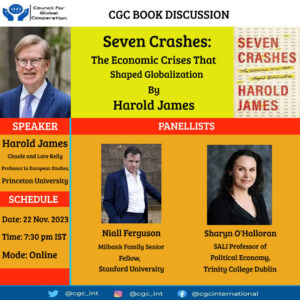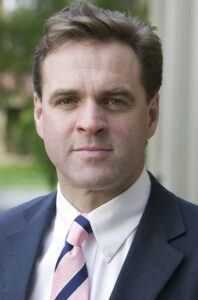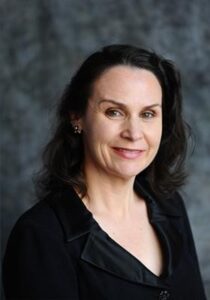
The eminent economic historian Harold James presents a new history of financial crises, showing how some led to greater globalization while others kept nations apart.

Seven Crashes (Yale University Press, 2023) presents a new perspective on financial crises, dividing them into “good” crises, which ultimately expand markets and globalization, and “bad” crises, which result in a smaller, less prosperous world. Providing seven case studies from the depression of the 1840s through the Great Depression of the 1930s to the Covid-19 crisis, James shows turning points in financial history. He shows how crashes prompted by a lack of supply, like the oil shortages of the 1970s, lead to greater globalization as markets expand and producers innovate to increase supply. On the other hand, crises such as the Global Financial Crisis of 2007–2008, triggered by a lack of demand, result in less globalization as markets contract, austerity measures are imposed, and skepticism of government grows.
James considers not only the times but also the observers who shaped our understanding of each crisis—from Karl Marx to John Maynard Keynes to Larry Summers. He shows how the uneven course of globalization has led to new economic thinking and how understanding this history can help us better prepare for the future.
SPEAKER:

Harold James
Claude and Lore Kelly Professor in European Studies and Professor of History and International Affairs, Princeton University
PANELLISTS:

Niall Ferguson
Milbank Family Senior Fellow at the Hoover Institution, Stanford University; Senior Faculty Fellow of the Belfer Center for Science and International Affairs, Harvard University

Sharyn O’Halloran
Strategic Academic Leadership Initiative Professor of Political Economy and Trinity Professorial Fellow, Trinity College Dublin; George Blumenthal Professor of Political Economy and Professor of International and Public Affairs, Columbia University
MODERATOR:

Soumava Basu
President and Founder, CGC
Thank you for your interest in this event. To attend, please email at info.cgcinternational@gmail.com